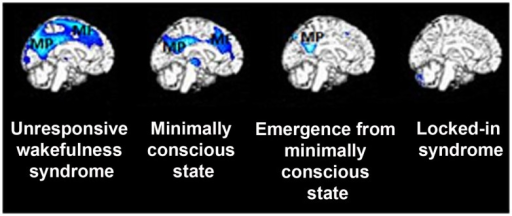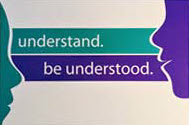
Unresponsive wakefulness syndrome (UWS) is replacing the medical term persistent vegetative state. “Let’s look at WHY?”
Background
- Vegetative state (VS) was first coined in 1972. It described patients who have survived a coma, can open their eyes but do not respond to commands. (Coma is an acute condition – a complete absence of awareness and consciousness lasting no more than a few days or weeks.) Patients diagnosed with VS can recover some degree of consciousness in the months following the brain injury, but also can remain in the condition for years.
- VS was later changed to persistent vegetative state (PVS), chosen because patients in this state would show intact vegetative functions of the brainstem.
- In 1994 another term permanent vegetative state (PVS) was coined for patients with no sign of recovery of consciousness within three to twelve months following the injury.
- The progress of intensive care medicine led to an increased incidence of patients with PVS. That, plus the use of neuroimaging and electrophysiology, which allow for better assessment of consciousness, both contributed to why the term persistent vegetative state is outdated.
Persistent Vegetative State
Vegetative was originally chosen from the Oxford English Dictionary, defined as “an organic body capable of growth and development, but devoid of sensations and thoughts”. However, using vegetative resulted in a negative connotation and unintentionally comparing people to vegetables or vegetable-like.
State means long-standing and possibly irreversible, which is not descriptive of the condition. It also has a negative connotation of being chronic.
PVS is the abbreviation for both persistent vegetative state and permanent vegetative state. This has caused confusion about which state exists resulting in misguided decisions regarding end-of-life issues.
Unresponsive Wakefulness Syndrome
Unresponsive illustrates that the patient only shows reflex movements without response to commands.
Wakefulness refers to the presence of eye-opening either spontaneous or stimulation-induced. This is never observed in a coma.
Syndrome stresses the ability to assess a series of clinical signs.
Take Away
Using unresponsive wakefulness syndrome as an alternative to a persistent vegetative state removes the negative connotation. Advances in the field of neuroimaging show that some patients may still show some cognitive processing, which is better indicated in the new term. UWS also offers the medical community the possibility to adopt a neutral and descriptive name for the clinical syndrome, plus it removes the confusion of one abbreviation PVS, for two different conditions.
Whether you are employed in healthcare, you or your family are receiving healthcare, or you are tuned into the news (Otto Warmbier, the former North Korean detainee), watch for this term in use and more importantly, add it to your own vocabulary.
Articles Referenced:
International Brain Injury Association
Like this post? Share with your friends!






